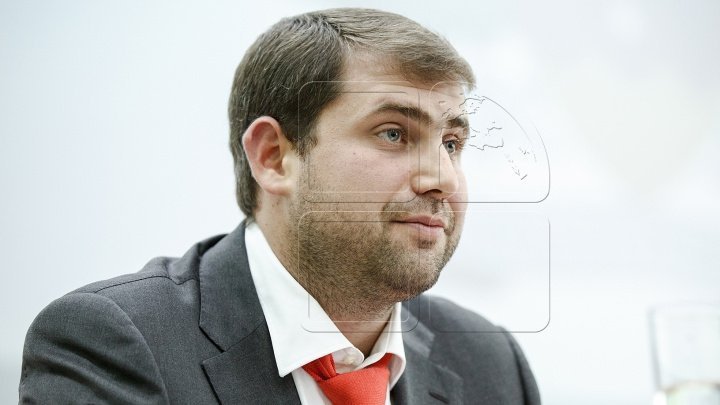Ilan Șor presented evidence that proves credit of Zinaida Greceanii's husband from Banca de Economii
 foto: publika.md
foto: publika.md
The deputies of the Political Party ȘOR will send two requests to the Prosecutor's Office and to the Parliamentary Commission of Inquiry regarding the robbery in the banking sector regarding the loan of approximately 40 million lei taken by the company of Zinaida Greceanii's husband in 2008 and which has not been returned until today. The announcement was made by the leader Ilan Șor.
According to Șor, the husband of the Speaker of the Parliament Zinaida Greceanîi is behind a company that received a huge loan from the Banca de Economii that he did not return. Moreover, most likely Zinaida Greceanîi has been influential for the credit of her husband's company.
He stated that he has all the documents that prove the existence of this credit and the involvement of Zinaida's husband Greceanii.
"We have all the documents that prove that this company belongs to him. As a former chairman of the bank's board of directors I saw these documents in the original," said Ilan Șor.
In this context, Ilan Șor criticized the fact that the investigation bodies should handle this visible and known case.
Moldova’s Parliamentary Investigation Commission published the 154 page Kroll-2 Report on the country’s billion dollar bank fraud case. That being said, some details, such as the names of certain companies and people involved, were omitted. What’s more, the report does not contain a list of beneficiary accounts of the bank fraud. What Kroll-2 presents is the schemes through which non-performing loans were offered and how the funds were later laundered and circulated. The report also contains a list of 77 companies within the Shor group and the loans they took from Moldovan banks.
In their report, experts from the corporate investigative company Kroll attributed a total of 77 companies to Ilan Shor, acting together to carry out a billion dollar bank fraud scheme. Companies from this group were active in the fields of investment, insurance, airlines and duty free retail, including Avia Invest, Classica Air (previously Nobil Air), Caravita, Klassika Asigurari, DFM Prim. According to the report, the people and companies affiliated with the Shor group increased their stake within the Moldovan Banca de Economii (BEM), Banca Socială (BS) and Unibank in order to facilitate the fraud. The Kroll-2 report claims that since 2012-2013, members of the Shor Group acted jointly in order to gain control over the banks. This allowed them to increase loan amounts.
The board of directors of the three banks approved loans even after receiving warnings. Kroll contacted Octavian Calmic and Elena Matveeva – board members appointed by the Government as BEM supervisors – but both said that they were not invited to any board meetings in November 2014 and were not aware of the loans granted during this period.
Kroll experts also interviewed BEM employees, which revealed that a significant number of relevant materials related to the loans offered to the Shor Group were destroyed in a suspicious fire at the end of November 2014.
According to the report, during the period from 1 January 2012 – 26 November 2014, BS, BEM and Unibank offered a total of $2.9 billion in loans to companies from the Shor Group.
The money from these loans was then redirected to foreign accounts in Latvian banks ABVL and Privatbank Latvia, through which they were laundered. It appears that the aforementioned accounts were opened solely for this purpose – they did not record any other transactions.
Other parts of the loan were transferred to bank accounts in Russia and other jurisdisctions, while some amounts remained in Moldova, where they went through a coordinated money-laundering process and then disappeared into several different bank accounts.
Of the $2.9 billion, Kroll mentions that about $220 million in loans of the Shor Group companies remained in the Republic of Moldova and were used to repay loans from the BS, BEM, Unibank and other banks. Some of the money went towards repaying other loans, while other funds were mixed with these amounts to make their tracking impossible.
According to the Kroll-2 report, Victoriabank and Moldindconbank were among the other Moldovan banks that received loan transfers to accounts by the Shor Group. The Kroll company claims that it is not clear whether these transfers were part of the money-laundering process or if this was their final destination. The analysis of transfers shows that the Shor Group borrowed not only from BEM, BS and Unibank, but also from other banks in Moldova, as well. These were later covered by funds obtained during the bank fraud.
The National Bank of Moldova hired the Kroll company to investigate fraud perpetrated through the three aforementioned banks on 28 January 2015. The cost of the contract was not made public, writes zdg.md